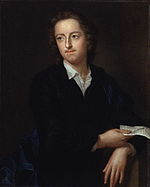
Read through the most famous quotes from Thomas Gray
[citation needed] These include:
"The Paths of Glory"
"Celestial fire"
"Some mute inglorious Milton"
"Far from the Madding Crowd"
"The unlettered muse"
"Kindred spirit"
Gray also wrote light verse including Ode on the Death of a Favourite Cat Drowned in a Tub of Gold FiThomas Grays a mock elegy concerning Horace Walpole's cat. [citation needed] It contains many phrases which have entered the common English lexicon either on their own or as quoted in other works.
Thomas Gray (26 December 1716 – 30 July 1771) was an English poet letter-writer classical scholar and professor at Cambridge University. He is widely known for his Elegy Written in a Country Churchyard publiThomas Grayd in 1751.
